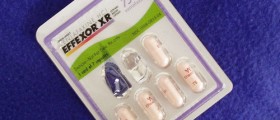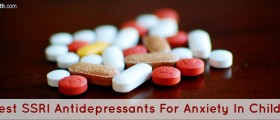
Zoloft is an antidepressant in the selective serotonin reuptake inhibitors group. This means that Zoloft actually works by affecting the brain chemicals that are unbalanced in patients. The imbalance of brain chemicals usually manifests as depression, panic, anxiety or obsessive-compulsive symptoms. Zoloft was first introduced to the market by Pfizer in 1991, and used to treat major depression in adult outpatients as well as obsessive–compulsive disorder, panic and social anxiety disorders in both adults and children. Zoloft was the most prescribed antidepressant on the U.S. retail market, with 29,652,000 prescriptions. Despite this fact, Zoloft is known for its numerous side effects.
Zoloft side effects
Side effects associated with Zoloft may manifest as worsening depression or other psychiatric conditions. Sometimes the side effects include unusual behavioral changes, even suicidal thoughts and attempts, or other mental and mood alterations. Zoloft’s side effects may sometimes include new symptoms or even worsening of the initial symptoms such as anxiety, panic attacks, trouble with sleeping, irritability, hostile or angry feelings, impulsive actions, severe restlessness or very rapid speech. Patients should tell the doctor immediately if he or she notices worsening of the symptoms.
Sometimes the side effects are completely physical and include nausea, dizziness, drowsiness, dry mouth, loss of appetite, increased sweating, diarrhea or sn upset stomach.
Some of the side-effects are less likely but very serious and they include easy bruising or bleeding, decreased sexual desire or ability, muscular cramps and fatigue, tremor and unexplained weight loss.
There is an increased risk of developing a serious condition known as serotonin syndrome, if the patient takes Zoloft with certain other drugs such as: dextromethorphan, lithium, St. John's wort, sibutramine, street drugs such as MDMA/"ecstasy," tramadol, tryptophan, certain antidepressants and "triptans" used to treat migraine headaches, among others. The symptoms of serotonin syndrome demand instant medical attention and they include hallucinations, unusual restlessness, loss of coordination, fast heartbeat, severe dizziness, unexplained fever, severe nausea, vomiting or diarrhea and twitching muscles.
In extremely rare cases, patients may experience a painful or prolonged erection lasting for 4 or more hours, as a side-effect of Zoloft.
The drug is not associated with any serious allergic reactions, but one should stop using it there are symptoms such as rash, itching or swelling, severe dizziness and trouble breathing.
Who should not take Zoloft?
People suffering from at least one of these conditions should check with their physician before using Zoloft: neuroleptic malignant syndrome, serotonin syndrome - adverse drug interaction, liver problems, bleeding from stomach, esophagus or duodenum, seizures, weight loss, syndrome of inappropriate antidiuretic hormone secretion, low amount of sodium in the blood, increased risk of bleeding, behaving with excessive cheerfulness and activity, mild degree of mania, manic-depression and thoughts of suicide.








-Uses%2C-Side-Effects-And-Risks_f_280x120.jpg)







Your thoughts on this
Loading...